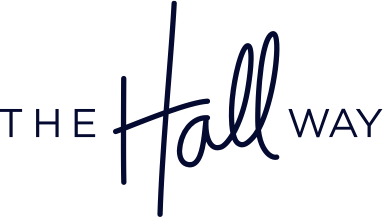Get on Board: Why board members make better consultants
Joining the board of directors at a national nonprofit has made me a sharper strategist and a better collaborator for my senior executive clients. If you rely on consultants to help you solve challenges and propel your organization forward, here’s why you should select someone who sits on a board.
Join the right board
Last spring I joined the Board of the Child and Nature Alliance of Canada (CNAC), a national nonprofit. Over the years, I’d been asked to join several boards, and while I was always flattered, I was also very cautious. I wanted to ensure a proper fit; know that I could effectively contribute; and be deeply passionate about the organization’s mission, values, and direction. I leapt at the opportunity to join the CNAC Board because all of those requirements finally lined up. (You’ll learn more about CNAC and why I care so deeply about our work at the end of this post.)
Reap unexpected rewards
Most of my clients are public sector organizations who—like their private sector counterparts—depend on their board to help set direction, manage risks, and measure success. Given my involvement in their strategic planning and digital transformation initiatives, it’s common for me to engage with board members to set and measure strategic direction.
So when I joined CNAC’s Board, I felt I had a good handle on board governance and the role I’d play in helping CNAC achieve its targets. Now that I’m well into my board journey, I realize that I underestimated just how much I’d gain from this experience, and how much it helps me improve my service to my clients. Being on a board allows me to deepen and hone the skills I already have and (even better) acquire new ones.
Over the years, I’ve seen the role of boards expand. There are more requirements and learning opportunities for board members than ever before. According to McKinsey, “directors are now required to engage more deeply on strategy, digital, M&A, risk, talent, IT, and even marketing. Factor in complexities relating to board composition, culture, and time spent—not to mention social, ethical, and environmental responsibilities—and the degree of difficulty continues to rise”. This is particularly relevant in the nonprofit sector, where organizations consistently need to “do more with less.”
This expanded scope means board members learn extensive lessons they can bring into their day jobs. If those board members are consultants, it’s a huge win for their clients who’ll receive more holistic, strategic guidance.
Five ways you’ll benefit
Here are five areas where I’ve learned critical lessons through my board involvement. They all mean better offerings for my clients, and they’re areas you should be interested in if you’re hiring consultants:
- Strategy
Board members have a valuable role to play in establishing an organization’s strategy. A notable McKinsey report says that “ensuring that a company has a great strategy is among a board’s most important functions and the ultimate measure of its stewardship.” Together with my colleagues, we provide active input and approval on strategic direction, which includes mission, vision, values, objectives, and measures. Since I spend a lot of time working with clients on their strategic planning, especially as it pertains to digital initiatives, I like that my board involvement allows me to hone my analytical, facilitation, planning, and presentation capabilities related to strategy.
2. Financial acumen
Not everyone gets to manage large budgets or make high-stakes financial decisions in their day-to-day work. But being on a board requires a sound understanding of financial management principles and an ability to execute them appropriately. Serving on the CNAC board gives me the opportunity to help the organization achieve its goals through smart financial planning and to set and review financial reports to assess how we’re doing. Being able to read, understand, and act on financial statements is a critical business skill that serves me well.
3. Risk appetite
Board involvement provides exposure to important conversations about risk. It allows me and my colleagues to develop our risk appetite—that delicate balance of managing risk without suppressing growth and innovation. We must continually evaluate how we’re measuring up against our goals and how well we’re mitigating risks while capitalizing on opportunities.
4. People dynamics
In my line of work, emotional intelligence is indispensable. I regularly juggle the needs of disparate stakeholders and competing priorities. Being on a board provides countless opportunities to heighten my emotional intelligence and political savvy (the two go hand in hand). When participating in meetings or reviewing strategy and documents, I need to quickly understand the issues, their roots, who they’ll affect, and how and when to act. I pay attention to how different stakeholders interact and adapt my communication style and decision making accordingly.
5. Organizational culture
Organizational culture plays a critical role in delivering long-term success. It’s also an area where boards are expected to make deeper contributions than ever before. I strive to embody the values, attitudes, and behaviours that will help CNAC’s leadership and staff maintain solid operational performance and positive stakeholder relations. It’s an honour to help shape CNAC’s culture through recruiting, performance monitoring, and setting a solid example.
So how do you make sure your consultants have internalized these lessons and can use them to help you? By asking the right questions.
What to ask
Ask consultants you might work with about their board activities and contributions. Chances are you’ll get a sense of their passions, work ethic, and emotional intelligence, as well as the type and quality of skills they’ll offer your organization. Here are some openers to get the conversation going:
- How well can they articulate the mission, vision, and values of the organization they serve as a board member?
- Does it seem like they have a good handle on that organization’s strategic priorities? How did they help shape them?
- Do they sit on any of their board’s committees, such as finance or nominations?
- Have they been involved in developing or monitoring organizational policies and procedures related to critical topics such as delegation of authority, code of conduct, HR, or risk management?
- Have they contributed to corporate fundraising activities?
- How do they evaluate their board’s performance as a group, and their own as individual members/directors?
Over to you
If you serve on a board, I’d like to hear more about what you love and learn from your experience and how you apply it to other areas of your life. If you’re a senior executive who’s vetting consultants (or employees, for that matter), consider incorporating questions about board work into your hiring process. I know this will bring some good insights to the surface.
Shameless plug: If your board could benefit from smart, kind, and effective strategic planning or facilitation work … hit me up. Let’s talk about what you need.
PS: What is CNAC and why is it amazing?
People get enormous benefits from being immersed in nature. Studies have shown that a strong connection to nature correlates to measures of well-being and positive mental health. Sadly, we spend far less time in nature than in previous decades, and children in particular are disconnected from the natural world. If we reverse this pattern and come to love and rely on nature when we’re young, it sustains us as we grow and it’s more likely we’ll become stewards of the earth.
In 2017, I completely reshaped my life to make connecting with nature a top priority. I now spend 60-90 minutes hiking deep in the woods every morning. It’s been incredibly transformative and has helped me improve every aspect of my life. I’ve learned that I’m my best self when I spend long stretches outdoors every single day. I want everyone to experience these benefits and I know that it starts by fostering a nature connection in children.
Here’s a description of what we do at CNAC. It’s why I love serving on the board—we’re engaged in such meaningful work:
CNAC believes in and promotes quality, immersive, outdoor play, and outdoor play-based learning for all children in Canada, on a repeated basis in ALL weather. We focus on two critical things: where children learn and how children learn. We’re catalyzing a national movement in Canada by training and mentoring Forest and Nature School Practitioners (Early Childhood Educators and Primary School Educators) so that more children can experience inquiry-driven, child-directed learning on the land. As the result of CNAC’s work, children can have more opportunities for unstructured outdoor play regardless of sociocultural background. They’ll experience significant improvements in overall childhood development and well-being.
What we’re doing at CNAC is nothing short of incredible and I can’t be more excited to support and grow this work. Reach out to me if you’re interested in learning more or would like to get involved.

